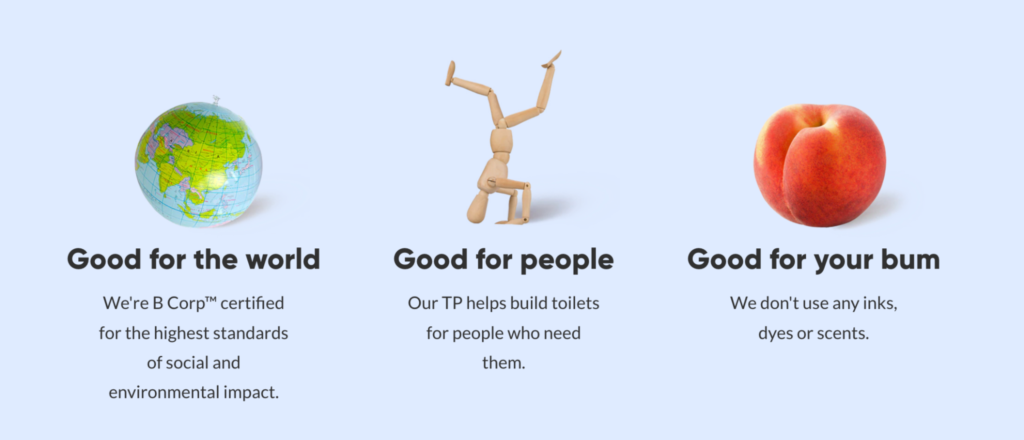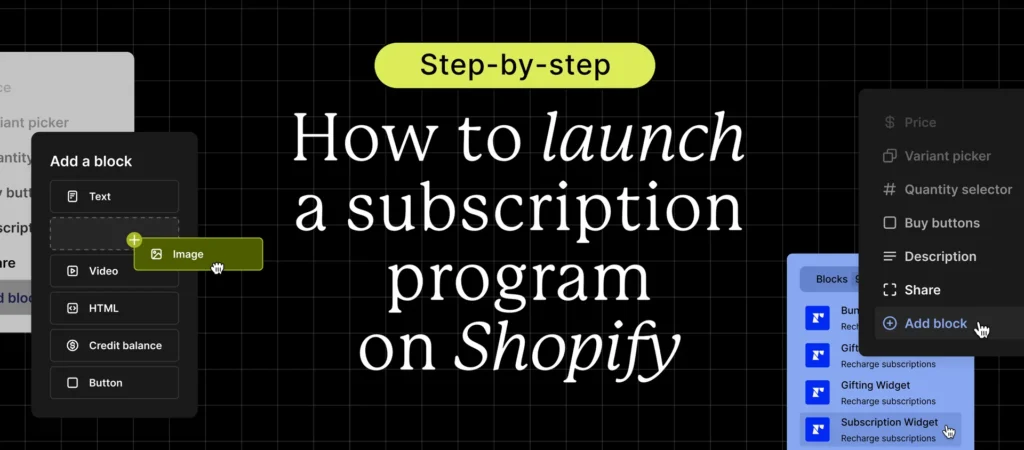What does DTC (D2C) mean? All about direct-to-consumer
Published April 2022
Published Apr 2022
Updated April 2022
Updated Apr 2022
9 min read

AI Summary
Understanding direct-to-consumer (DTC) commerce is simple: Businesses sell their products or services directly to their end customers. In other words, the middleman is cut out of the chain, allowing merchants to reach their customers directly.
Understanding direct-to-consumer (DTC) commerce is simple: Businesses sell their products or services directly to their end customers. In other words, the middleman is cut out of the chain, allowing merchants to reach their customers directly. Many businesses choose this particular business model so they have more control over the customer relationship.
To better understand the direct-to-consumer model, let’s dive into its meaning, some business types, and the pros and cons of choosing DTC.
What does direct-to-consumer mean?
So, what is DTC? As it’s listed in our ecommerce glossary, direct-to-consumer is “an ecommerce business model where a merchant produces their own products or services and sells them directly to consumers. This differs from other business models, where third-party retailers or wholesalers can be used.” Direct-to-consumer is also known as D2C or DTC.
DTC is becoming more and more popular, especially among online stores, because it gives them a direct line to their customers. This increased interaction and control can help increase customer retention and brand loyalty—plus, the customer journey is cohesive and simple for shoppers.
Pros & cons of the direct-to-consumer model
When starting a business or online store, there are many things to consider. Deciding which business model will be most advantageous is a crucial first step. While there are many pros to the direct-to-consumer model for consumer brands, there are also a few disadvantages you’ll want to consider. Explore these pros and cons below to make the best decision for your business.
DTC advantages
For merchants looking to reach consumers directly and drive sales in a personal way, direct-to-consumer is the best business model. You can sell directly to individual consumers at competitive pricing, and meet all customer expectations thanks to this personal approach.
1. Control over the customer experience
The biggest and most well-known advantage of direct-to-consumer businesses is the control they have over just about everything in the customer journey. With DTC, brands can influence:
- Brand positioning
- Brand identity
- Product design
- Digital marketing
- Supply chain
- Shipping logistics
Unlike traditional retail, direct-to-consumer brands control every aspect of the customer experience, from how shoppers hear about their product to the ways in which they can purchase the product. Furthermore, DTC brands can utilize the data and customer feedback they collect to make the customer journey even better.
2. Direct access to customers
Brands that are able to interact directly with their customers can gain valuable insight into how their customers behave and what will be successful among their customer base. By tracking customer data and analyzing metrics, a direct-to-consumer company can help ensure the end user will be satisfied with their shopping experience—something a traditional model can’t always deliver on. When customers feel heard and seen, they will keep coming back to your brand.
3. Own customer data & information
When building a brand, it’s crucial to build relationships with customers. It’s hard to do this if you don’t have your customer’s information, such as their email address or phone number. How can you communicate with customers, or make improvements to the customer experience, if you don’t have any information about them?
For this reason, direct-to-consumer business models have a real advantage over traditional models.
One great example of a DTC brand that owns their customer relationship—and utilizes communication channels and customer data to their advantage—is BlendJet. The revenue from their email marketing alone is 22%. By only selling directly to consumers and refusing offers to stock their products with retail distributors when they first started, they were able to build a strong customer base and capture crucial data to help them improve their brand for their target audience.

4. Targeted marketing efforts
With all this crucial customer information and data, DTC brands can launch targeted marketing efforts. Whether utilizing email or social media marketing, knowing who your target audience is and what they look for in a brand will help you hit the mark with any marketing campaign. Stocking products with retail partners, on the other hand, means giving up control of how your product will be advertised.
Marketing strategies for DTC brands benefit from the control over all digital channels, and the access to data that traditional businesses—such as retail stores—lack. Utilizing social media channels, brand ambassadors, and user-generated content are all part of a great marketing strategy. Direct-to-consumer merchants can try out different strategies and analyze the data to see what’s effective with their target audience, responding to trends in a timely manner.
5. Build relationships with loyal customers
When brands sell directly to the end consumer and not in retail stores, they have the chance to build a more personal relationship with their customers. One of the major advantages of DTC is this opportunity to cultivate a community of loyal customers. Interacting with consumers online and utilizing marketing tactics aimed to increase customer engagement will help your brand grow and create a stable following. Both you and your customers will benefit from this close relationship.
Using a subscription-based model can also be the difference between converting new customers to customers for life. Many DTC brands offer subscription services to give customers stability. For example, consumer packaged goods (CPG) brands—selling frequently-used replenishables like household cleaners or personal care products—offer enormous convenience and value to their customers by offering these items on subscription. This is also a great way to increase sales by creating a model with repeat payments.
DTC disadvantages
Of course, as with any business model, there are going to be some challenges for those that use a DTC strategy. When deciding on which model to use, it’s crucial to understand both sides of the coin. Many of the advantages of direct-to-consumer will outweigh the disadvantages listed below.
1. Technology
If you’re going to build a DTC brand, it means you’ll need the proper tech stack to manage and run your business. The technology needed for business processes will depend on your brand and how you’d like to configure the customer experience. In order to make direct sales, you have to set up an online store that’s simple for customers to navigate, and gives you all the data and information you need on the back end.
2. Operations
Consumer brands need to have steady operations in order to keep up with customer orders, help and support tickets, shipping, and other operational factors. When selling products directly to consumers, there aren’t always retail partners to help with these logistics. For this reason, any DTC brand has to have a solid plan as to how they will operate and what roles they’ll need to fill. Much of the focus should be on acquiring new customers and retaining existing ones.
3. Processing orders
As with the operational considerations, direct-to-consumer brands will need to arrange their own product packaging, processing, and shipping. To sell products, companies have to consider the entire process—from manufacturing to packaging to shipping. Whether you sell beauty products or pet food, you will need a robust plan to get customers their products.
Examples of successful DTC brands
There are many brands crushing the direct-to-consumer game, and they can provide inspiration for those aspiring to also follow this model. The merchants listed below are all great examples of direct-to-consumer companies that have taken advantage of the benefits of this model.
1. Bumpin Blends
As mentioned, a major advantage of the DTC model is the direct access to customers, which allows a brand to build strong relationships with their end customers. This relationship is enriched when a company makes a greater effort to connect and share content that’s helpful to the consumer.
Bumpin Blends does an excellent job of this by offering a 24/7 text hotline with a personal dietitian nutritionist. Customers can ask questions or get advice from these professionals, and even request recipes. Plus, by offering a subscription service, Bumpin Blends stays even closer to their customers and ensures they are stocked with new smoothie cubes each month.

2. BlendJet
Like many popular DTC brands, BlendJet took a common object that many people use and made it better. Their blenders are highly popular, giving consumers easy access to healthy food without too much effort. Any brand yearning to find success in the direct-to-consumer space can learn a lot from BlendJet. Not only do they communicate effectively with their customers, but they’ve also built a community around their brand.
Listening to customer feedback—including reading and responding to customer comments in social media channels—gave BlendJet the information they needed to grow in the right direction. Plus, they’ve built brand awareness through popular YouTube videos and recipes on their website. Consumers genuinely enjoy their content, whether they find the brand through a viral video or by looking up a smoothie recipe.
3. Who Gives a Crap
Brands that sell products wholesale can follow Who Gives a Crap’s example in the direct-to-consumer space, as they offer their products to businesses and other consumers looking to buy in bulk. Offering earth-friendly toilet paper, tissues, paper towels, and other products, Who Gives a Crap makes their mission clear to their customers from the minute they enter their website.
Any company with such a strong mission and commitment to the environment is bound to attract customers. By keeping their relationship close, Who Gives a Crap is able to provide shoppers with content that is appealing to their audience.

Consumer brands choosing DTC
Direct-to-consumer brands enjoy many benefits that traditional retail stores do not. The DTC model is one of control and freedom for merchants—with power over the customer journey, each brand can ensure they are meeting customer expectations and successfully marketing their products.
Categories





